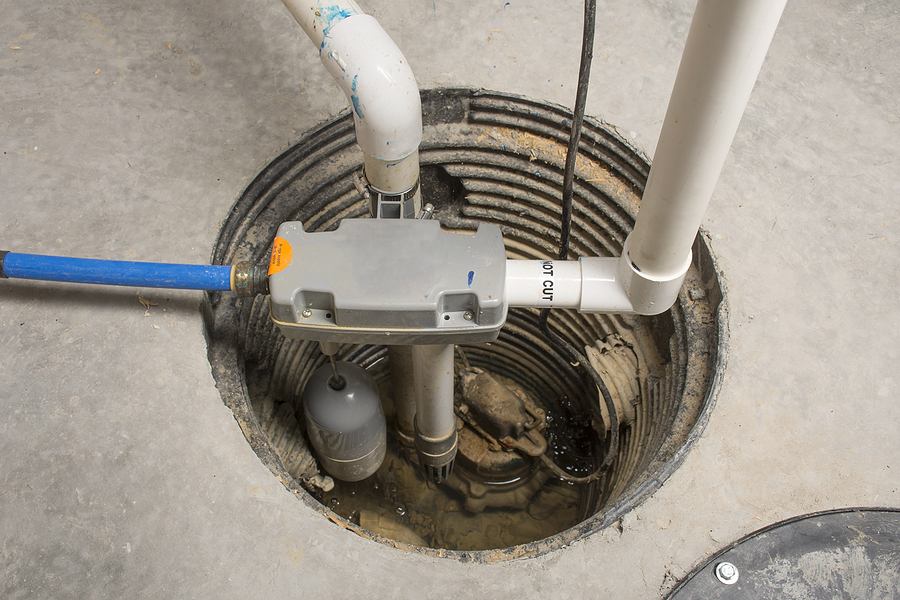
16
Imagine a powerful storm that rains over the city and water starts flooding your basement, ruining your property and the furniture in it. Sump pumps can prevent water damage in a situation like this. Learn more about what a sump pump is and how it can save you from countless water damage bills.
A sump pump is a submersible device that is inserted into a sump pit that has been dug at the lowest point of your home. Your basement will be less likely to flood with the help of this minor but crucial addition to your house.
Water that has accumulated in your basement is diverted by a sump pump. In order to prevent flooding and damage to your home, it collects water that enters your basement and drains it to a location at least 15 feet away from your foundation. A sump pit, or the lowest point in your home's basement, is typically where sump pumps are situated. A floating activator arm or pressure sensor automatically turns on the sump pump as soon as water enters it, and it begins to remove water from your home's foundation. Naturally, the water should not be allowed to return once it has been removed. Your sump pump's check valve helps to prevent water from returning to the pump in this situation.
Knowing what a sump pump is and its many advantages are essential, especially if your home is susceptible to flooding. The main advantage is that sump pumps prevent flooding in your basement. Damage caused by water can be harmful not only to your health but also to your valuables and property. The risk of asthma attacks, allergic reaction complications, and even upper respiratory infections can all be exacerbated by mold brought on by moisture. Other benefits of a sump pump include:
Septic system installation works to divert sewage away from a home or business in areas without city sewer. The usual components of the system are a tank, a drain field, and the necessary pipes. If the septic tank is built above the building or the drain field is above the septic tank, a sump pump may be required. Sump pumps are mostly used as water management systems, whereas septic systems deal with solid waste and wastewater. When gravity works against the system, the sump pump assists in moving the wastewater upward. A separate electrical line for the sump pump, preferably with a waterproof outlet, is required.
Remember to keep up regular maintenance for both the septic system and the sump pump. For the septic system, septic tank pumping in Matthews should be performed every 3-5 years. If you require septic tank pumping soon, call Charlotte Septic Pros for our services. As for sump pumps, inspect the pit, and check the valve, the alarm, the cover, and the discharge location to make sure everything is functioning and in good condition.
If you have decided that a sump pump is right for you, choose Charlotte Septic Pros as your septic company so that you can be serviced by plumbing experts. Our plumbers will guide you through every step of the installation process, reassuring you if you have any concerns, so don’t fret. Call now to schedule an appointment for installation.

22
Can Bacteria Additives Eliminate the Need for Pumping? If you own a home with a septic system, you’ve probably seen…
Read more
12
A single slow drain in your home can feel like a minor inconvenience. Maybe the sink takes a little longer…
Read more
05
Are Slow Drains a Septic Issue or Just a Clog? Slow drains are one of those household problems that start…
Read more
02
What Septic Service Techs See That Homeowners Miss Most homeowners only think about their septic system when something goes wrong.…
Read more
21
Simple Habits That Protect Your Septic System A well-functioning septic system does its job quietly, but the moment something goes…
Read more
14
Pump Now or Pay Later: The Real Cost of Skipping Maintenance A properly functioning septic system is easy to forget…
Read more
11
Why Your Septic System Always Acts Up at the Worst Time Homeowners often feel that septic problems strike at the…
Read more
04
Early Warning Signs Your Septic Tank Needs Pumping For homeowners who rely on a septic system, routine maintenance is not…
Read more
29
Why Does My Septic System Smell Fine One Day and Terrible the Next? If you own a home with a…
Read more
19
Is Your Septic System Overdue? Simple Home Checks You Can Do Today For many homeowners, the septic system is a…
Read more